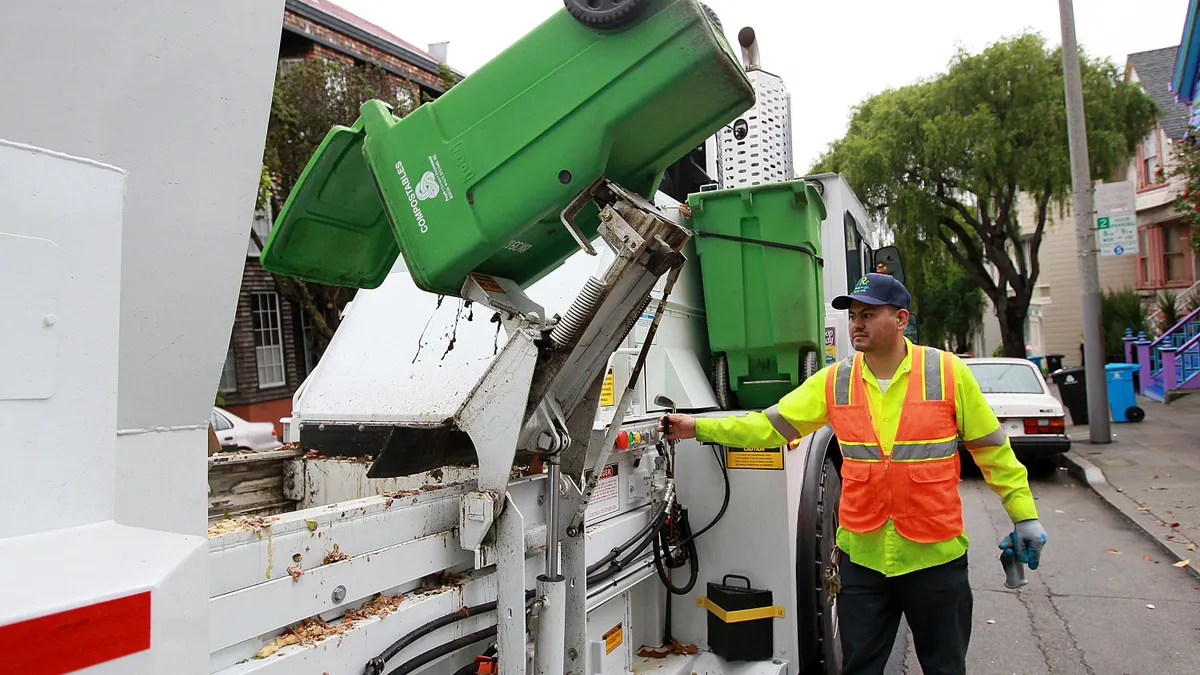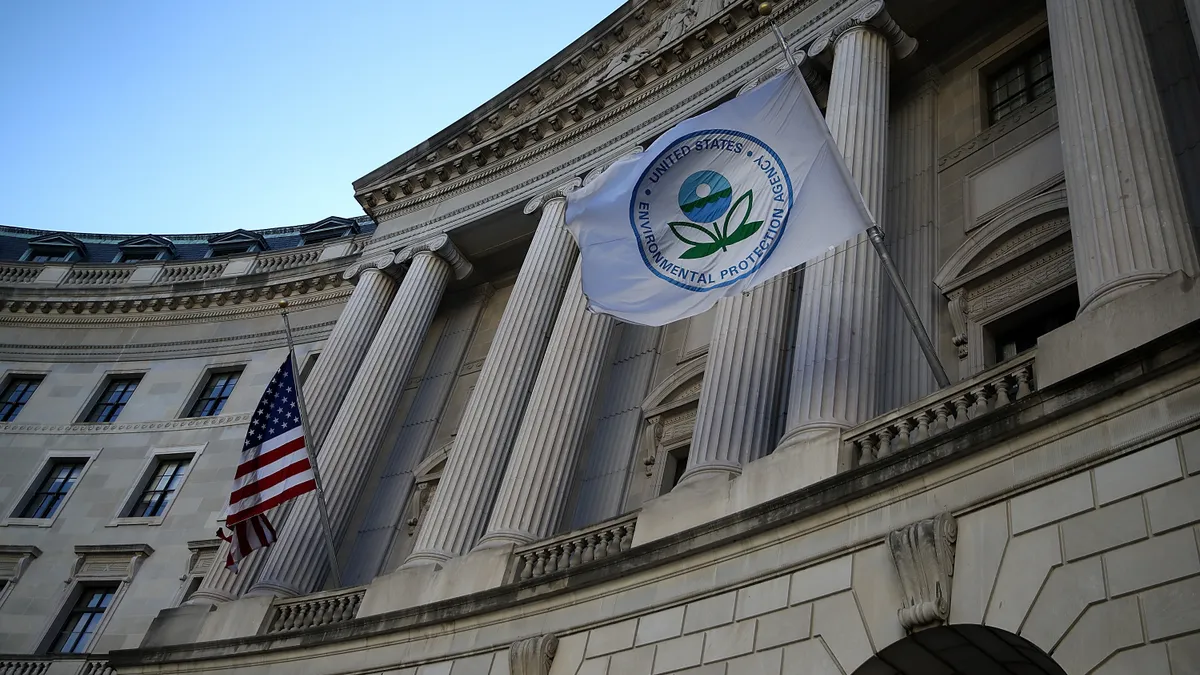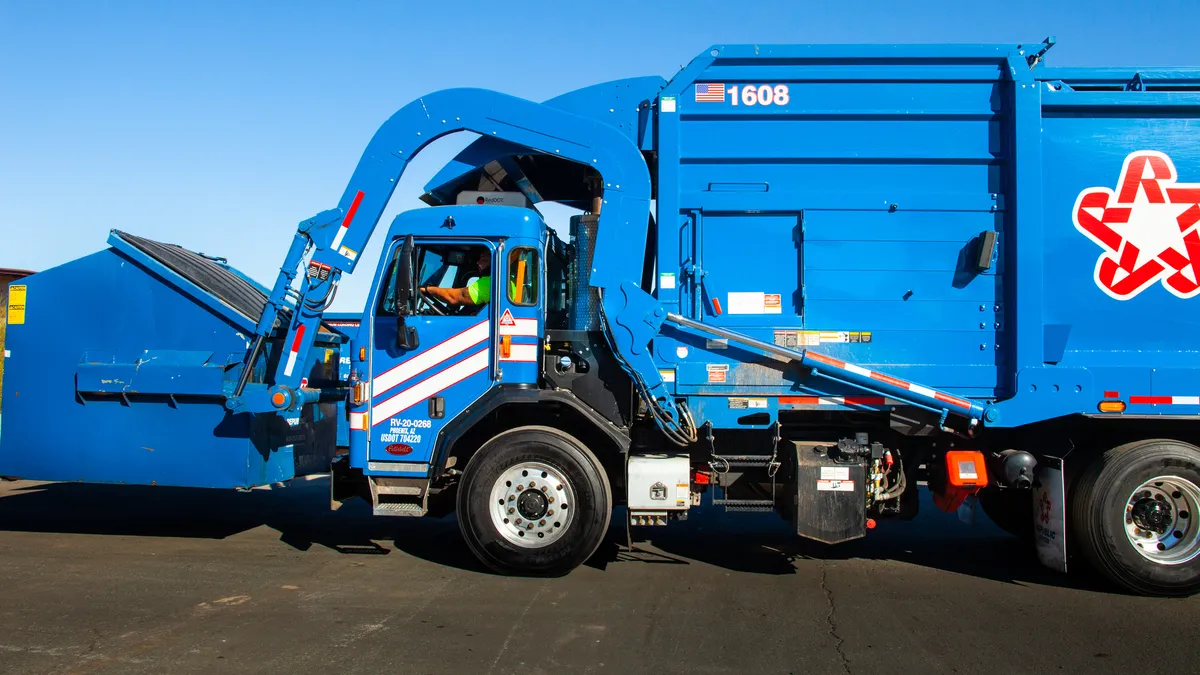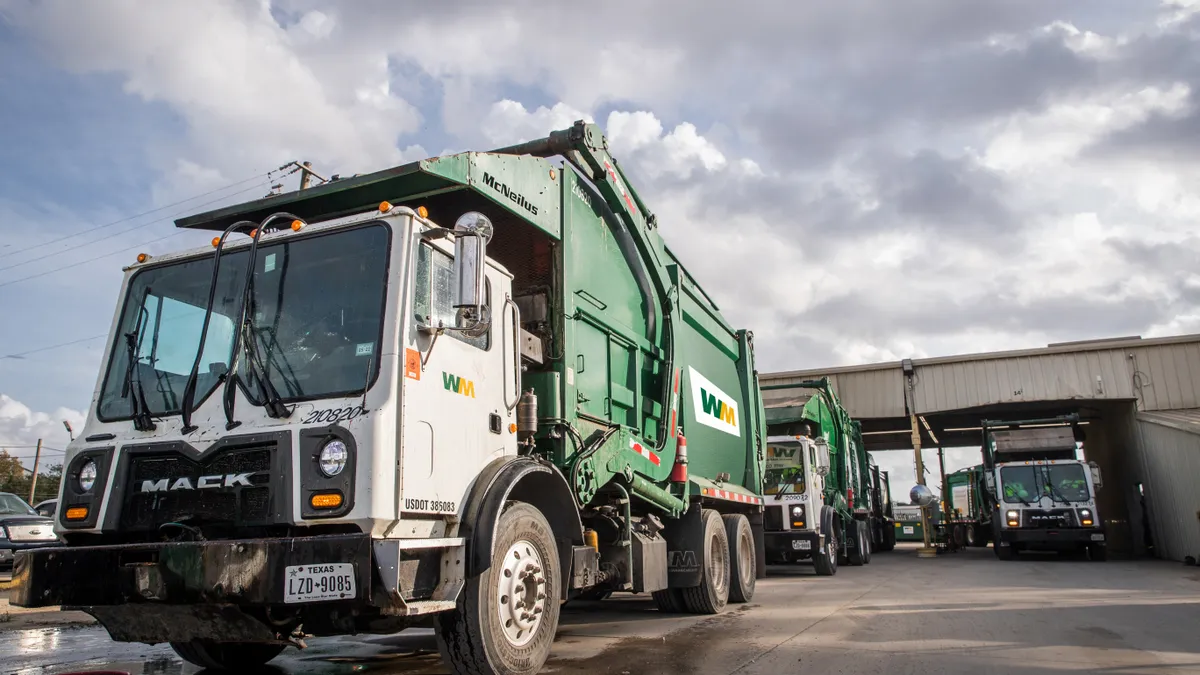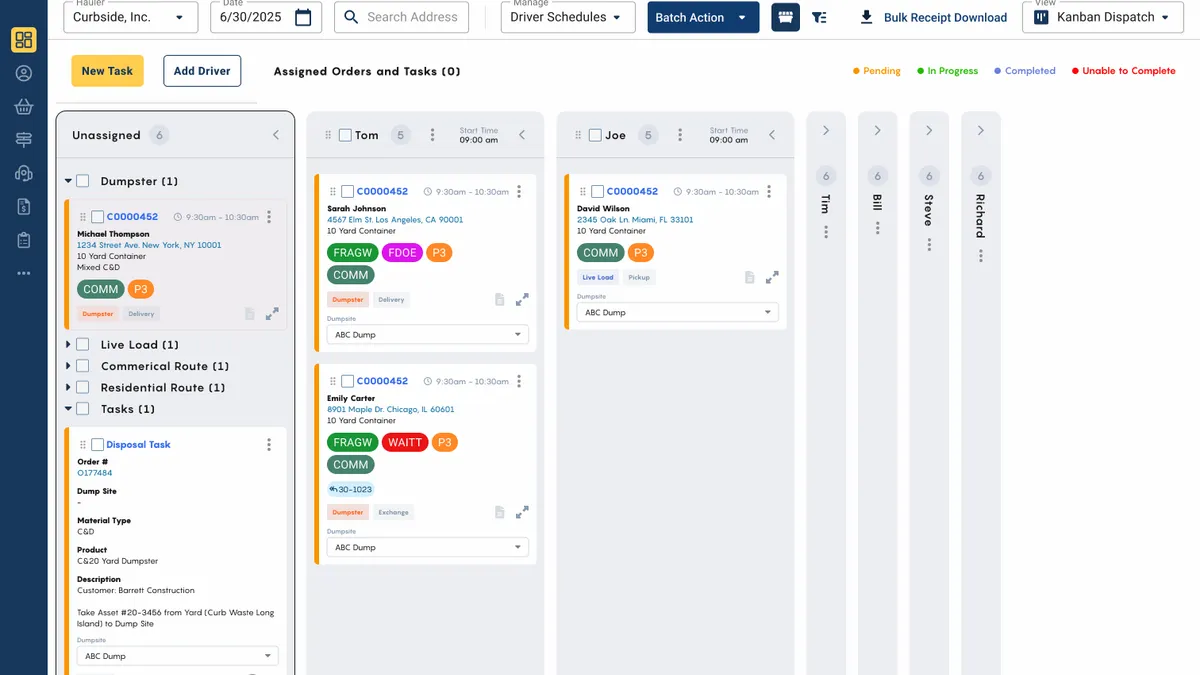Editor’s Note: Waste and recycling are inherently local issues in the United States, and we’re looking for new ways to highlight how these stories fit into broader trends. Send us your tips or feedback at waste.dive.editors@industrydive.com.
Food waste diversion insights from city leaders in California, Georgia and Wisconsin
Local government staff from major U.S. cities convened during a session at the NYC Food Waste Fair this week to discuss the rise of organics recycling programs -- and strategies to recover food upstream.
In Madison, Wisconsin, which currently has three compost dropoff sites, one of the key hurdles to ramping up the organics diversion program over the past decade was the messaging to residents. Contamination was an issue, particularly when residents didn’t quite understand what organics recycling was, said Bryan Johnson, recycling coordinator in the city’s streets division.
The city explicitly calls it a food scrap recycling program, Johnson said, because “organics may be too vague for some people, because you can buy organic bed sheets and towels and clothes that people can confuse that can go into this bin.”
“Or even calling it food waste like we did for a minute, [we were] still seeing a lot of potato chip bags or butter wrappers and things that are a waste from food [packaging] -- maybe that's how they were making that connection.” Madison has a goal to have a citywide food scrap recycling program by 2028. The city has previously run curbside organics collection pilots.
San Francisco Department of the Environment’s Alexa Kielty, a residential zero waste and special projects assistant, noted that these programs take a long time to ramp up. “I would tell folks that are behind us, it probably takes about 10 years to sort of normalize [food] scrap collection,” she said.
San Francisco, which has had a residential composting program since 1999 and passed mandatory composting in 2009, has pushed for food waste producers like restaurants to use technology platforms including Leanpath, Copia and Replate for food waste prevention and donation matching. Grant funding from CalRecycle has supported those effort. The question is whether businesses will independently use those tools when grant funding runs out, Kielty said.
In Atlanta, a key part of addressing food waste has been aligning the city’s Climate Action Plan and Food Access Plan and focusing heavily on recovering food to alleviate food insecurity among city residents, said Natasha Dyer, senior recycling program coordinator in the Mayor’s Office of Resilience.
“For me, as someone who's worked in recycling, this is a paradigm shift,” Dyer said, noting that even though the “reduce, reuse, recycle” hierarchy places recycling last, efforts to improve food waste diversion from a recycler’s perspective often focus on enabling more composting. Dyer said that it wasn’t until a few years ago that she recognized how much of the food that ends up in landfills is actually edible. “So of course, up until this point, it's easy to understand that food recovery wasn't informing or shaping our Food Access Plan.”
How the pandemic affected recycling education
Recycling programs have encountered numerous challenges in recent years, and the pandemic further complicated education efforts, according to speakers at this week’s SWANA Sustainable Materials Management Summit.
Public sector employees from Maryland, South Carolina and Florida all said reducing contamination had been a top priority pre-pandemic to meet MRF requirements and reduce costs. Each jurisdiction reported double-digit contamination rates in its program and said targeted engagement, such as through cart-tagging and local meetings, has been successful. The pandemic shifted some of those strategies.
“One of the largest impacts from COVID for us was the fact that we weren’t able to provide that face-to-face education that we rely on so heavily,” said Christina Moskos, recycling program manager for Charleston County, South Carolina.
The pandemic meant no more meetings with residents at schools and homeowners associations, and no more facility tours. At the same time, shifting education sessions to a virtual format also opened them up to new people. According to Stephanie Watson, recycling program manager in Pinellas County, Florida, this included residents, haulers and MRF operators who were unable to make it to in-person events prior to the pandemic.
The Baltimore Department of Public Works Bureau of Solid Waste had similar success with virtual events. “Having different means of outreach really helps us meet our equity goals as well,” said Chief of Support Services Kristyn Oldendorf.
Like multiple other programs around the country, Baltimore’s curbside recycling program was temporarily suspended due to pandemic-related labor shortages. Oldendorf said while this was difficult, it helped show how much residents still want to recycle based on their engagement with temporary drop-off sites.
Tonnage was down by an estimated 30% compared with curbside collection, but the material collected “notably looked cleaner” due in part to the efforts of city employees staffing drop-off bins. The city aims to reinforce this progress with a cart-tagging campaign when it rolls out new recycling carts in the coming months.
More updates from around the country:
-
New Orleans is among the U.S. cities facing trash pickup delays, which hauler Metro Service Group says is related to a COVID-19-related labor shortage. Also reporting delays this past week are communities in St. Lucie County, Florida, where hauler Waste Pro has reportedly received 8,000 complaints since the beginning of the coronavirus pandemic regarding delayed or missed pickups, and Prichard, Alabama, where pickup is run by the local government. Similarly, communities in mid-Michigan are seeing delays to trash, recycling and yard waste pickups, which contractor Republic Services said is due to a lack of drivers. Radcliff, Kentucky, city public works employees may supplement Waste Management staff to alleviate pickup delays.
-
The reopening of localities and states in the aftermath of COVID-19 lockdowns is leading to some pronounced litter issues. While litter and illegal dumping issues were problems during the pandemic, the recrowding of public spaces in Chicago, for instance, is resulting in a surge of litter, Mayor Lori Lightfoot decried. In New York, Department of Sanitation Commissioner Edward Grayson this week spoke publicly at an event promoting a new anti-litter campaign on Staten Island.
-
Austin Resource Recovery is one of 10 representatives on an advisory council to the U.S. Plastics Pact, which this week released a “Roadmap to 2025.” In line with that road map, the city of Austin, Texas, says it will strive by 2025 to hit goals including eliminating problematic or unnecessary packaging; making all plastic packaging reusable, recyclable or compostable; and reaching a 30% threshold for average recycled or responsibly sourced bio-based content in plastic packaging. The city of Phoenix is also involved with the pact.
-
Commissioners in Polk County, Florida, recently opted not to pursue a commercial waste franchise system that could limit the number of local haulers. Their decision was due in part to a pending law, backed by the industry, designed to make such a move more complex and expensive. (The Ledger)
-
Boulder, Colorado, is offering businesses a year’s worth of compostable bags in a bid to alleviate one of the costs associated with complying with its local requirement to separate compostable materials from trash and nonorganic recyclables. The program is funded by a 10-cent fee on disposable paper and plastic bags at grocery stores.



